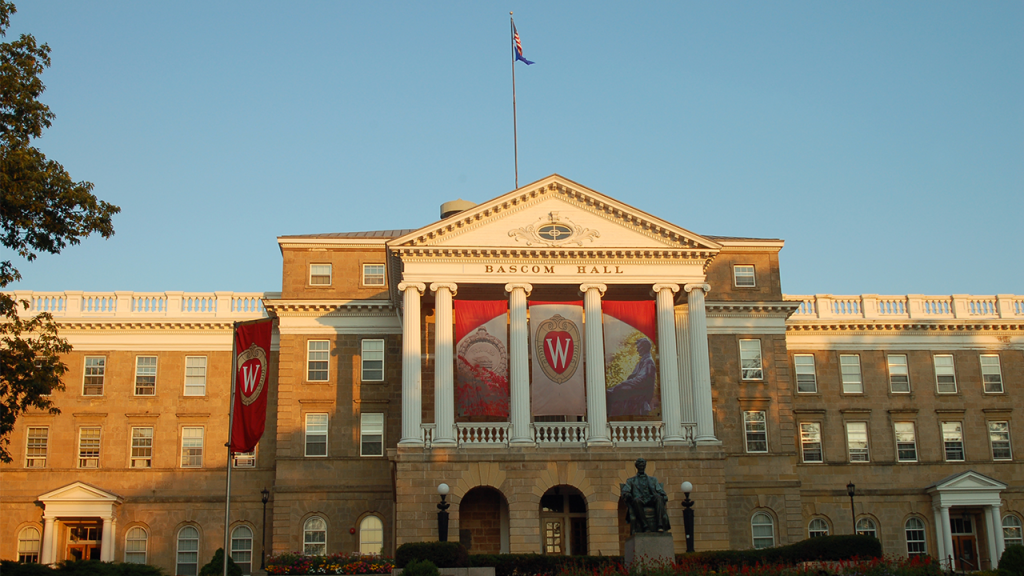The University of Wisconsin-Madison is facing scrutiny following revelations that its former chief diversity officer, Lavar Charleston, exhibited significant lapses in both judgment and fiscal responsibility during his tenure. An internal report has disclosed that Charleston approved substantial pay increases for staff, along with questionable spending on student programs and conferences. This incident occurs concurrently with a broader national movement among lawmakers advocating for the reduction or elimination of diversity, equity, and inclusion (DEI) initiatives across educational institutions. Such initiatives are under investigation by the Department of Education for potential violations of civil rights.
| Article Subheadings |
|---|
| 1) Overview of the Situation |
| 2) Details of Financial Mismanagement |
| 3) Impact of DEI Programs Under Investigation |
| 4) The Broader National Context |
| 5) Reactions and Future Implications |
Overview of the Situation
In January, Lavar Charleston was dismissed from his position as the chief diversity officer of the University of Wisconsin-Madison but continues to serve as a faculty member. His removal was prompted by concerns raised regarding his management practices, particularly in a time of heightened scrutiny toward DEI programs within the state and nationwide. This scrutiny reflects a growing trend among lawmakers looking to reevaluate and potentially dismantle such initiatives across educational institutions. As part of the University of Wisconsin system, the spotlight on Charleston comes as state lawmakers introduce bills attempting to limit the influence of DEI programs.
Details of Financial Mismanagement
An internal report has indicated that during his leadership, Charleston authorized substantial salary increases for employees, ranging from 10% to 23%, without proper justification. These raises occurred as state lawmakers were intensifying efforts to rein in DEI initiatives, raising questions about financial oversight and administrative responsibility. Furthermore, the report reveals that Charleston’s spending on diversity initiatives included extravagant outlays, such as approximately $18,000 spent on massage therapy for students and around $21,000 allocated for a conference held in the resort city of Lake Geneva. His per-employee spending significantly exceeded that of other campus administrators, raising eyebrows among educational officials and policymakers.
Impact of DEI Programs Under Investigation
Charleston’s activities occur against the backdrop of a nationwide investigation by the Department of Education involving around 50 universities, including the University of Wisconsin-Madison. This investigation focuses on claims of racial discrimination, primarily accusations that certain races are unfairly excluded from DEI programs and initiatives. The department has warned that institutions could face loss of federal funding if they engage in race-based preferences during admissions, scholarships, or other academic activities. The scrutiny centers on universities’ partnerships with organizations like the PhD Project, which promotes diversity among doctoral candidates in business fields.
The Broader National Context
This incident takes place amidst a broader movement led by officials seeking to dismantle DEI programs at several levels of education. Notably, the administration has positioned its arguments around Title VI of the 1964 Civil Rights Act, contending that such programs may discriminate against White and Asian American students. In response to these criticisms, some universities are reassessing their DEI strategies to ensure compliance with federal regulations while navigating the complex terrain of student diversity and inclusion efforts. The discourse surrounding these issues is becoming increasingly polarized, with advocates both for and against the continuation of DEI programs voicing their views.
Reactions and Future Implications
In light of the internal report and ongoing investigations, reactions have emerged from various stakeholders within the education community. Advocates for diversity and equality are expressing concern that the dismantling of DEI programs may hinder progress toward equitable educational opportunities for all students. Conversely, proponents of the legislative changes argue that the focus should shift towards merit-based qualifications rather than any race-based considerations. As investigations progress, the manner in which institutions approach diversity and inclusivity will likely face further scrutiny, leading to potential reforms in how funding is allocated toward these initiatives.
| No. | Key Points |
|---|---|
| 1 | The University of Wisconsin-Madison’s former chief diversity officer was removed following financial mismanagement allegations. |
| 2 | Charleston reportedly approved significant employee raises without justification. |
| 3 | The Department of Education is investigating several universities, including Wisconsin-Madison, for potential racial discrimination. |
| 4 | The funding and legitimacy of DEI programs are becoming subjects of national discourse and potential reform. |
| 5 | Reactions to the situation reveal a divided stance on the future direction of DEI initiatives in higher education. |
Summary
The case of Lavar Charleston and his financial oversight at the University of Wisconsin-Madison exemplifies the complexities surrounding DEI programs amid heightened scrutiny from lawmakers and educational authorities. As the investigation unfolds, the outcomes may shape the future of diversity initiatives across campuses, potentially resulting in significant shifts in policy and funding. With contrasting viewpoints on the necessity and efficacy of DEI programs, the dialogue surrounding these initiatives continues to evolve, influencing educational landscapes on a national scale.
Frequently Asked Questions
Question: What led to the dismissal of Lavar Charleston?
Lavar Charleston was dismissed due to allegations of significant mismanagement of funds as chief diversity officer, including unauthorized salary increases for employees and questionable expenditures.
Question: How is the Department of Education involved in this matter?
The Department of Education is conducting an investigation into various universities, including the University of Wisconsin-Madison, focusing on accusations of racial discrimination and compliance with Title VI of the Civil Rights Act regarding DEI programs.
Question: What are the broader implications of the ongoing investigations into DEI initiatives?
The ongoing investigations may lead to reforms in how DEI initiatives are structured and funded, with potential consequences for institutions that engage in race-based preferences contrary to federal regulations.


